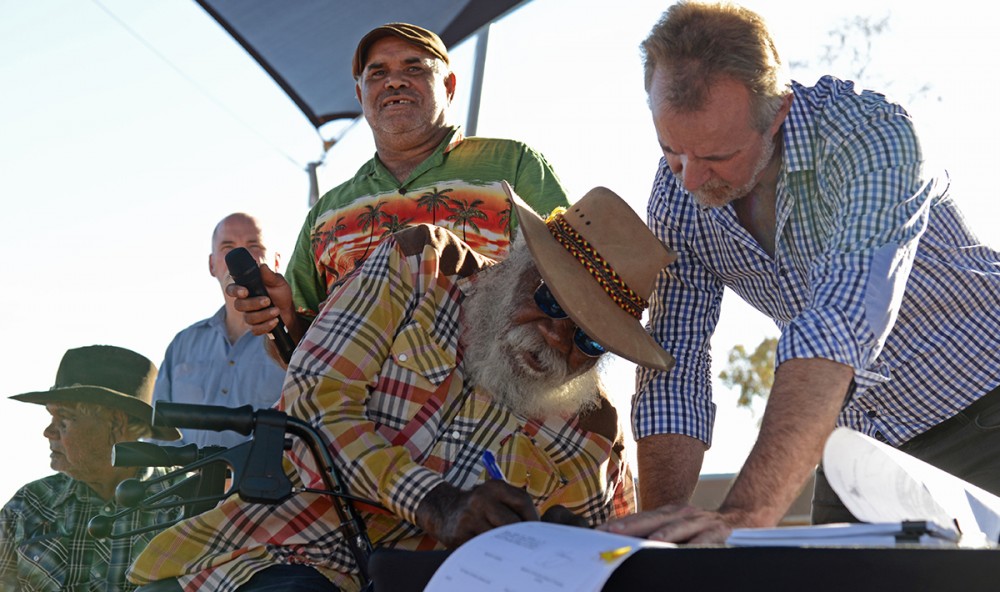
The Mutitjulu community near Uluru today signs off on an innovative township lease that will put traditional owners and residents firmly in control of their future.
“This is a profoundly important settlement between residents and traditional owners – a negotiation about future roles and responsibilities for land use in a community that we hope will be widely emulated,” said Central Land Council director David Ross.
“We have worked with Mutitjulu since 2010 to devise this community-driven leasing model because ceding control over the community to a Commonwealth officer was never going to fly with our constituents,” Mr Ross said.
“Our model keeps decision making in local Aboriginal hands, but also acknowledges the need to build community capacity and strong governance.
It allows for innovation and change in decision making processes under the Aboriginal Land Rights Act.”
Today’s 4pm signing ceremony in the centre of the remote community in the jointly managed Uluru Kata Tjuta National Park follows the ratification of the sublease by the park’s Board of Management.
Last December, traditional owners and the CLC agreed to grant a sublease until 2084, when the head lease of Parks Australia expires.
Initially held by the Commonwealth’s Executive Director Township Leasing (EDTL), the sublease must eventually transfer to a yet-to-be-established community corporation.
This will happen when the CLC is satisfied that the new corporation has the capacity to manage the sublease.
If the corporation runs into trouble, it can be transferred back to the EDTL.
“From today, the EDTL must consult with a committee of residents and traditional owners before making any land use decisions in Mutitjulu,” Mr Ross said.
For the first time, organisations such as the clinic, the school, the store, or a community housing provider will be given legal permission to occupy premises in Mutitjulu and start to pay rent.
“These rent payments will fund community-driven projects similar to the Mutitjulu pool and the many other successful projects pioneered by our community development program,” he said.
There will be no rent payments to individuals and Parks Australia will not charge rent for the sublease.
Mr Ross said when the CLC first proposed its community leasing model, in 2010, the Commonwealth resoundingly rejected it.
“We persevered because traditional owners consistently opposed the Commonwealth’s township leasing model, and we are very pleased Indigenous Affairs Minister Nigel Scullion has accepted our model at long last,” he said.
“We also welcome the additional benefits the Commonwealth has agreed to make available upon signing of the sublease, such as the $10 million investment in community housing, modest accommodation for visiting traditional owners, and $2 million for a community business centre.”
The Mutitjulu Community Aboriginal Corporation (MCAC) requested a sublease six years ago because it wanted to create the certainty the community needs in order to develop with confidence.
Mutitjulu’s location inside a national park leased by the traditional owners to the Commonwealth made the negotiations particularly complex and time consuming.
